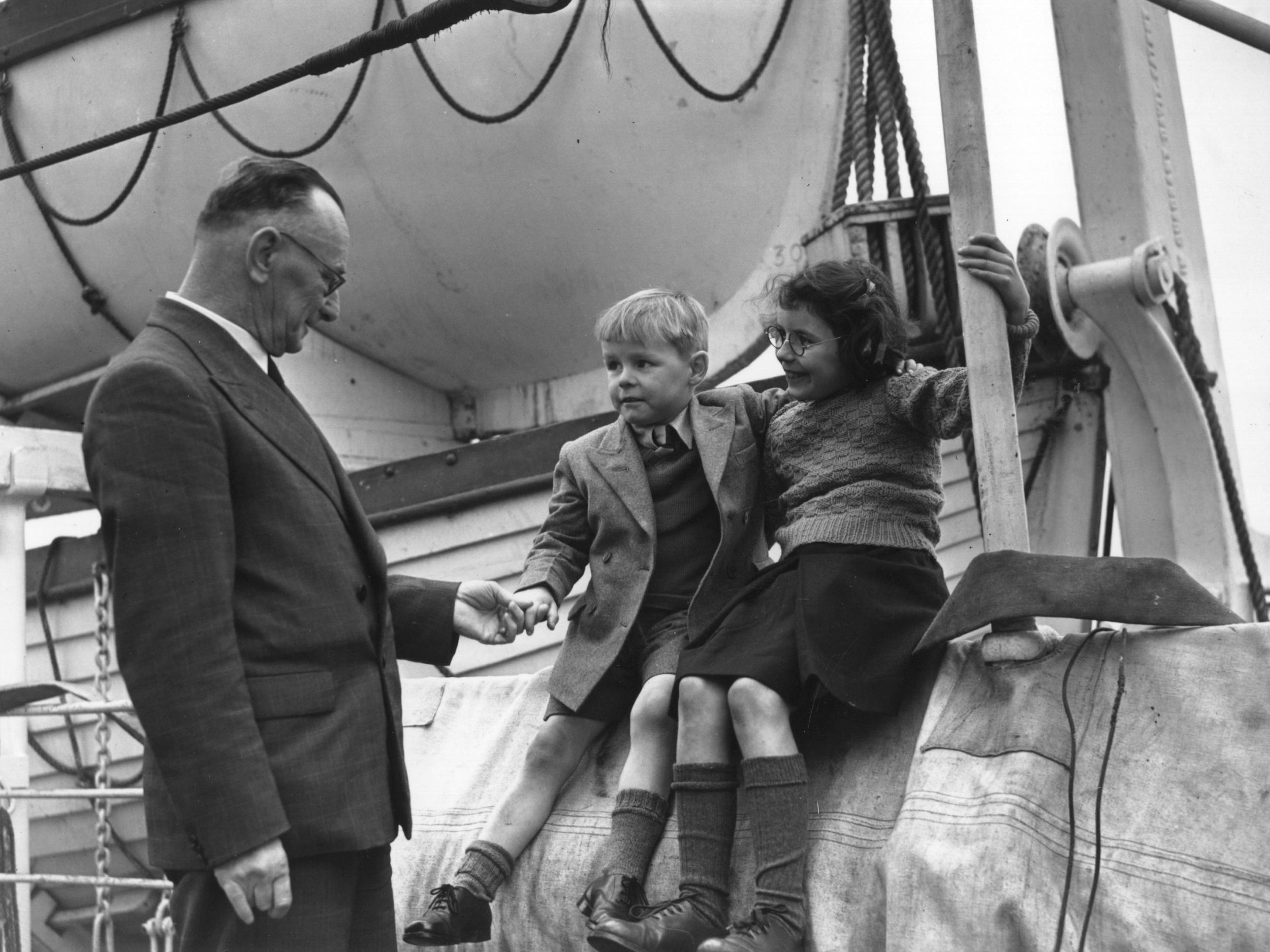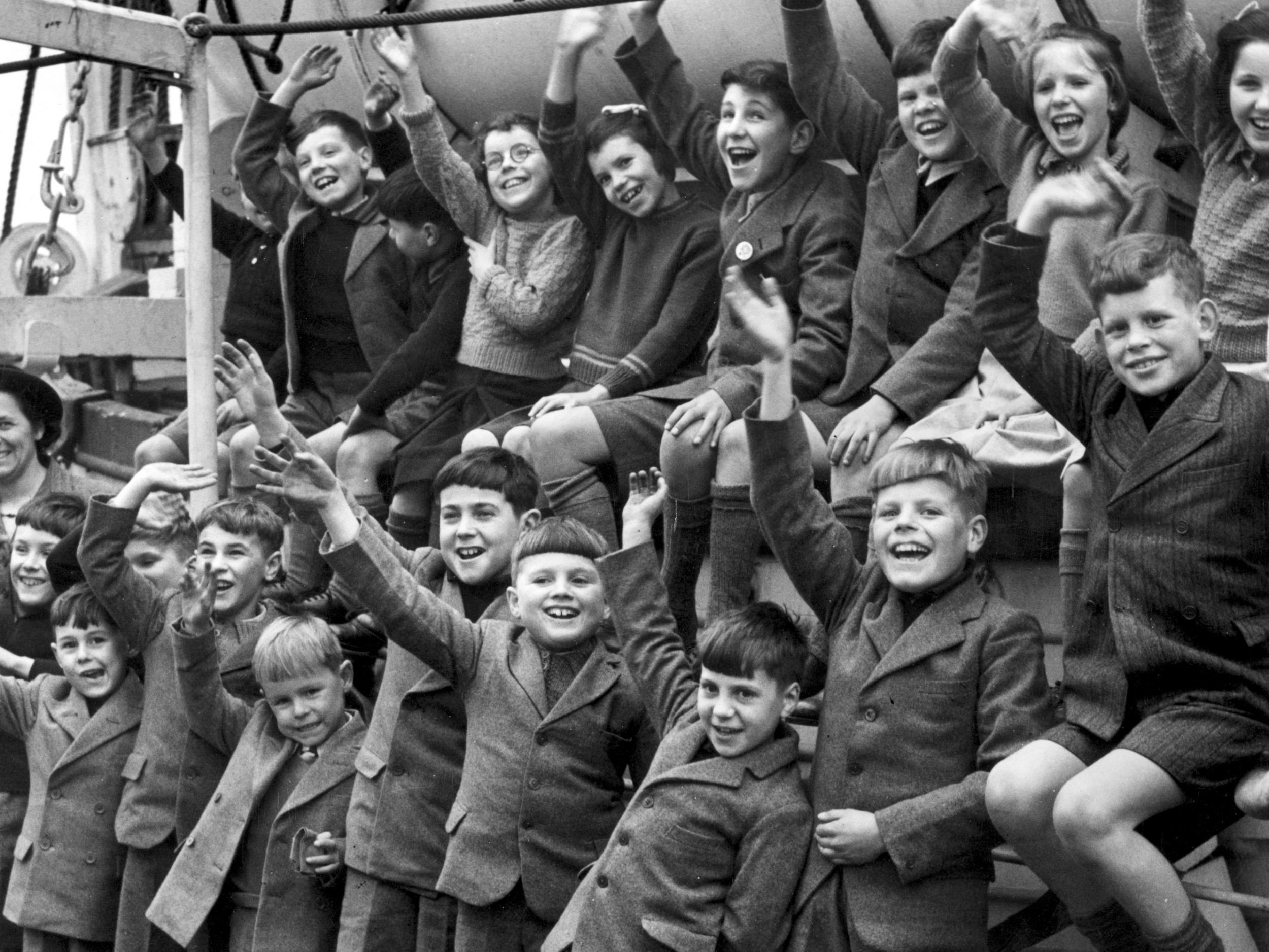Forced migration of children to Australia bigger sex abuse scandal than Jimmy Savile, says Gordon Brown
'Bigger in scale, bigger in geographical spread, and bigger in the length of time that went on undetected', says the former prime minister

Your support helps us to tell the story
From reproductive rights to climate change to Big Tech, The Independent is on the ground when the story is developing. Whether it's investigating the financials of Elon Musk's pro-Trump PAC or producing our latest documentary, 'The A Word', which shines a light on the American women fighting for reproductive rights, we know how important it is to parse out the facts from the messaging.
At such a critical moment in US history, we need reporters on the ground. Your donation allows us to keep sending journalists to speak to both sides of the story.
The Independent is trusted by Americans across the entire political spectrum. And unlike many other quality news outlets, we choose not to lock Americans out of our reporting and analysis with paywalls. We believe quality journalism should be available to everyone, paid for by those who can afford it.
Your support makes all the difference.Former prime minister Gordon Brown has said the forced migration of children to Australia and other Commonwealth countries during the 20th century is a bigger sex abuse scandal than the revelations about Jimmy Savile.
Giving evidence to the independent Inquiry into Child Sexual Abuse (IICSA), Mr Brown, who issued a national apology to victims in 2010, said the mass transportation of 130,000 British children overseas amounted to "government-enforced trafficking".
He said: "This seems to me as probably the biggest national sex abuse scandal.
"Bigger than what people have alleged about Savile. Bigger than what people have alleged about individual children's homes. Bigger in scale, bigger in geographical spread, and bigger in the length of time that went on undetected.
"I'm shocked about the information that I have seen."
Mr Brown told the inquiry that a Government minister should be "hauled" before it to explain why nothing has been done over "sickening" new evidence of abuse which has come to light in the past seven years.
He said: "We now know that the apology was only half the story, and we have yet to do something to remedy and to deal with the consequences of what is the other part of the story, which is as significant, perhaps more ... the abuse of so many hundreds, perhaps thousands, of children."
He added that he had not been aware of the scale of the abuse when he delivered his national apology in 2010.
The Australian government apologised for its part in the scandal the previous day.
The ex-PM said the surviving 2,000 victims of the migrant programmes, which continued until the 1970s, should be compensated as a matter of urgency.
Mr Brown said the forced transportation programmes were a "violation of human rights".
He said: "Clearly, successive governments have failed in a duty of care. And that is a source of shame.
"Children were denied a childhood, an identity, a family and any sense of belonging. Many, some as young as three, were sent abroad, often having been falsely told their parents were dead.

"In Australia, a national redress scheme may offer up to 150,000 Australian dollars (£90,000) to abused migrants. It is for Australian and other Commonwealth countries to compensate for the failure to protect and prosecute when children came to their country.
"In the recent Northern Ireland Inquiry, compensation has also been recommended. At a minimum, we should match Northern Ireland in what would be a £40 million fund for national redress."
Another former prime minister, Sir John Major, did not appear in person at the inquiry, but provided a written statement which said his government took the approach that mistreatment of British children sent abroad was primarily a matter for the country concerned.
The transportation scheme began in the 1920s, in part to east the population of UK orphanages int he years after the First World War, but also to give "lost" children a fresh start in the colonies.
But many children, some of whom were forcibly taken from their parents and were not told where they were going, found a life of hardship and depravity once they arrived as many were forced to work on farms and were subject to severe sexual and physical abuse.
One of the surviving victims, David Hill, waived his right to anonymity earlier this year to urge the chair of the inquiry, Professor Alexis Jay, to "name the villains" responsible for the policy.
Mr Hill, who later became the managing director of the Australian Broadcasting Authority (ABC), later uncovered documents shown to the inquiry which said a fact-finding mission was set from the UK to Australia in 1956 after people raise concerns about the policy.
As a result, a blacklist of institutions which were mistreating the children was drawn up by the British government but it was never enforced due to political pressure from the some of the charities and agencies involved.
Additional reporting by PA
Join our commenting forum
Join thought-provoking conversations, follow other Independent readers and see their replies
Comments